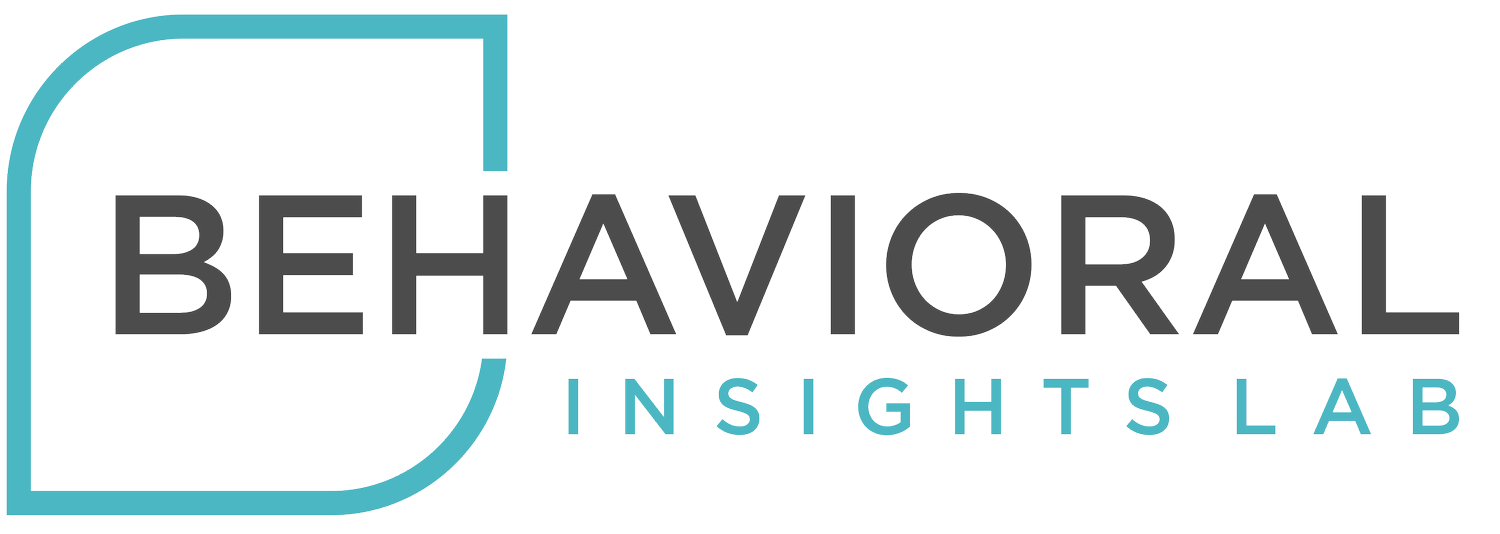
Behavioral
Insights Lab
Digital media use is accelerating in LMICs and is social media is increasingly being integrated into public health campaigns. Inexpensive, near-real-time behavioral research using digital tools has the potential to revolutionize public health interventions and make them more effective.
By leveraging the power of social media alongside powerful behavior models, the Behavioral Insights Lab is making behavioral science research more accessible to practitioners in sub-Saharan Africa and Asia. We are making research less expensive and immediately actionable.
TYPES OF SURVEY RESEARCH
We bring significant experience in the development and evaluation of behavioral interventions to the digital space. We have honed our skills on digital tools to generate insight for program design and the evaluation of norms-shifting interventions and behavior change campaigns on social media. The types of research that is well suited to the tools and approaches that we use include:
-
A one-round cross-sectional survey can be extremely useful to a broad range of program implementers who seek insights about their target audiences. In 2023, we conducted the first digital survey on HPV vaccine acceptance in Nigeria as formative research prior to designing a social media intervention: https://pubmed.ncbi.nlm.nih.gov/38250897/.
When time does not allow the conduct of a baseline survey, a a single-round survey can also be used for a post-test camapign evaluation, as we showed in Bangladesh: https://www.tandfonline.com/doi/full/10.1080/21645515.2024.2447105
-
This widely-used study design, involving pre-test and post-test surveys, can help determine the extent of change that occurs over time, even though it does not permit causal attribution. We have recently completed pre-test and post-test surveys of HPV vaccination among caregivers of adolecent girls in 3 divisions of Bangladesh with sample sizes of 5,000 respondents in each survey round.
-
Pre-test post-test suveys with a control group is one type of quasi-experimental study that enables causal attribution. BiL has recently completed a quasi-experimental study in Bangladesh where 2 types of social media interventions and a school-based promotion were compared to a standard national HPV vaccine rollout. https://verixiv.org/articles/2-61
-
Panel surveys are a powerful way of measuring change among the same respondents over time. An outcome evaluation of a social media intervention to increase COVID-19 vaccination that we were involved in showed 10 percentage point increase in vaccination: https://pubmed.ncbi.nlm.nih.gov/37713381/, including changes in norms related to vaccination. The study used a quasi-experimental, panel design.
-
Cost-effectiveness studies are essential in telling policy-makers which interventions to invest in. BiL recently completed a cost-effectiveness analysis of a social media campaign in Bangladesh: https://www.tandfonline.com/doi/full/10.1080/21645515.2025.2500264
BACKGROUND
BiL was launched in September 2022, but our partners and team members have been at the forefront of utilizing social media and digital platforms to discover actionable insights to guide health campaigns since the early 2000s. In 2016, BiL’s partner Upswell was the first to use Facebook data and APIs to gain key insights into how people discussed and thought about crucial health decisions. The impact of that effort can be seen on campaigns like the one UNICEF Brazil ran during a devastating zika outbreak. These efforts were the precursor to Meta’s Data for Good team.
BiL’s ability to leverage social and digital platforms for high-quality behavioral research has increased with every study that we have conducted and has generated a small, growing body of peer reviewed research.
As public health interventions increasingly integrate digital and social media interventions, BiL is at the forefront of this next wave of generate and utilizing behaiovral insights to improve health outcomes in LMICs.

